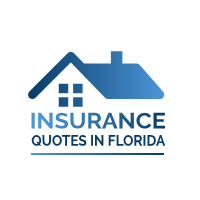Florida requires you to buy the least auto insurance of any state in the nation, which might sound like a great deal for its drivers. But having less coverage always means you carry more risk, and that’s especially true in the Sunshine State, for several reasons. For starters, Florida is one of a dozen states with “no-fault” insurance laws, meaning that each driver’s insurance pays for his or her own damages after an accident. This means that even if you cause a crash, your policy covers medical expenses for yourself and your passengers — but only up to the limits you set. If you’re not at fault, you can potentially sue the other driver for damages beyond what your insurance covers, but given that more than a quarter of Florida motorists are uninsured, it’s not certain how much you’ll be able to recover. Comprehensive insurance, which covers non-accident claims, is also a smart idea in a state that ranks fourth nationally in insurance losses from disasters like hurricanes. The bottom line is that purchasing only Florida’s state minimums leaves you open to financial headaches at best, and a devastating financial hit at worst.
Florida Minimum Liability
Florida only requires that you buy two types of auto insurance. The first is personal injury protection (PIP), which automatically pays for up to 80 percent of the medical expenses for you and your passengers after a crash, regardless of who was at fault. PIP also covers 100 percent of “replacement services,” should you or your passengers need help with daily household tasks because of your injuries, and 60 percent of your wage losses if you’re unable to work. The second type of required insurance is property damage (PD) liability coverage, which pays for damages to other people’s property if you’re the one at fault. The minimum levels can be expressed in the shorthand 10/20/10, which means the following:
$10,000 personal injury protection (PIP) coverage per person
$20,000 personal injury protection (PIP) coverage per accident
$10,000 property damage (PD) coverage per accident
While these amounts do offer some protection, there are many cases in which they wouldn’t fully cover you. Imagine you take your eyes off the road for a second, and cause a collision with a luxury car. If you’re seriously injured and have to take time off work, $10,000 of PIP probably won’t cover all the losses you incur from medical bills and lost wages. Likewise, you might have caused more than $10,000 worth of damage to the other car — a problem if you only had Florida’s minimum PD coverage. And importantly, if the other driver sues you for medical bills beyond what his own PIP covers, you’ll have to pay those out of pocket unless you had bodily injury (BI) liability coverage, which isn’t required in Florida.
But let’s say you weren’t the one at fault — there are still risks to carrying only Florida’s minimums. If your damages are more than your $10,000 PIP covers, there’s no guarantee the other driver will have liability insurance to make up the rest — or any auto insurance at all. In a situation like that, having uninsured motorist (UM) coverage on your policy would take the place of the other driver’s missing coverage, paying for your additional medical costs and the damage to your vehicle. It could be the only thing standing between you and a huge bill you don’t deserve. That’s why it’s a good idea to buy as much insurance as you can afford. (For more information on the various types of coverages, check out the Florida Department of Financial Services’ Automobile Insurance Toolkit.)
Your premium cost depends largely on personal factors: your age, credit score, how much you drive, and the type of vehicle you’re insuring, among other things. But because different providers will charge the same person more or less for the same coverage, the only way to find your cheapest rate is to compare personalized quotes. Still, there are many other important factors besides price, making our reviews of Florida’s top five auto insurers a good place to begin your search.

